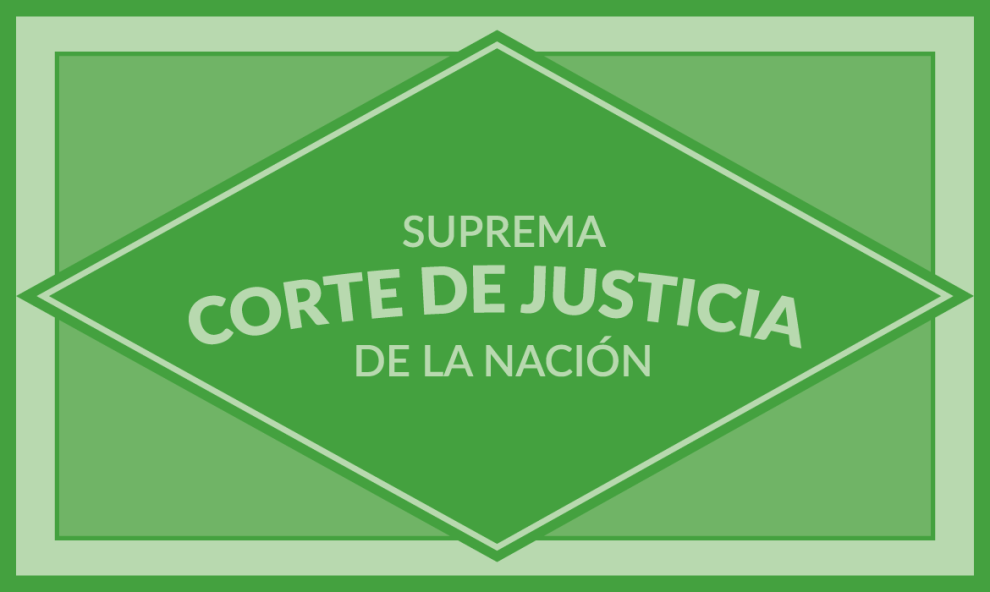The paralysis of which we complain so much reminds me of the “laboratories of democracy” described by Louis Brandeis, a U.S. Supreme Court judge. His argument was that it is impossible to set rules for everything so you have to let things flow and find their place, so that experimentation leads to finding the best way to bring about the development of a society. Sometimes I think that the Mexican interpretation of such a laboratory ended up producing something more akin to Dr. Moreau´s Island, the H.G Wells novel where horrific vivisection experiments mixed men and beasts.
For starters, I have no doubt that the country has confused democracy with paralysis. I wonder if the etiology of this paralysis is “structural” as some have suggested or is the by-product of our current circumstances. For example, while someone in England breaks the rules (as with an unauthorized demonstration), he or she will suffer the direct and merciless onslaught of the authorities, in Mexico marches, sit-ins and blockades of mayor city arteries are celebrated and protected regardless of the cost to the population. Some might say this is the result of a political assessment: it may be less costly for a decision maker to look after and protect protesters than to suffer the citizen´s contempt. But at least in this instance there is no doubt that, first, there is a political calculation involved and, second, if willing, those in power would be able to act.
However, what happens when “things do not happen,” when a government proposes legislation and it gets stuck down the road, when a free trade agreement is negotiated only to end up being rejected in the Senate. In these cases, are we observing political calculation or plain incompetence?
Let us start at the beginning, at the issue of the famous paralysis. If we refer to paralysis only in terms of the legislative process and the relationship between congress and the executive then it is clear that the alleged paralysis was first noted when the PRI lost its legislative majority in the year 1997. The then-new Congress wanted to distinguish itself from its predecessors by failing to comply with the wishes of the almighty presidency of old. We only need to remember some of the pompous, boastful, absurd and even disrespectful speeches of opposition lawmakers in their responses to the president’s State of the Union address of those years to illustrate that the explicit aim was to settle a historical debt not to build the foundations of a better system of government.
But let’s not overly dramatize: Congress is a much more active entity since 1997 than it was before. Today many more laws are passed and many of the laws that are approved respond to the interests of all kinds of people that have nothing to do with bills put forth by the executive (a subject which in itself deserves comprehensive analysis), but it shows that, far from being paralyzed, congress has in fact been quite active. And this truth also applies to presidential initiatives: Maria Amparo Casar has studied constitutional reforms and provides a number that sums it all: in the fifteen years since 1997, 64 constitutional decrees were approved, compared with 42 in the previous fifteen years. Paralysis is a myth.
What has certainly changed is the fact that presidential initiatives are no longer approved right away and some never are. The infamous “freezer” (as presidential bills that go nowhere are known) is full of bills that never saw the light of day. However, this fact in itself does not prove that there is paralysis or that this is necessarily a bad outcome. In my opinion, a highly relevant and often laudable state of things is that we have ended the terrible habit of having Congress endorse anything that was sent by the executive. Although we are far from having built a system of checks and balances, at least now there are some boundaries to the potential for abuse by the executive, which was previously the norm.
Having said this, it is obvious that we have a problem. Beyond the figures, we all know that the country requires significant changes in several areas and almost none of these have thrived in Congress. That is, although Congress has been overly active, the country has spent years waiting to amend laws on economic issues. This leads me to put forth two hypotheses: either politicians are unable to move by a combination of inertia and fear, or they simply do not have what it takes, especially the ability to build political processes, that will propel us towards the needed answers and solutions. Our politicians turn seemingly insignificant obstacles into a trek to the Himalayas.
Reflecting on this leads me to conclude two things. First, the country’s problems have nothing to do with the existence of legislative majorities and, therefore, assuming that the mere fact of there being a majority would solve the challenges of development is not just a chimera but also a form of self-deception. And second, the fundamental problem lies in the astonishing lack of capacity for political maneuvering displayed by the last three administrations.
The belief that all problems could be solved with a legislative majority is, to say the least, infantile. It implies assuming that the old political structure of control can be reconstructed by the mere fact that one party controls both the presidency and Congress. If something is self-evident today it is that politicians of all parties have learned to use their relative independence to avoid being overwhelmed by the president. At the same time, the president no longer has the tools at his disposal to impose his or her will. Pretending that everything will be solved by returning to the ways of the past is truly naive.
The underlying problem lies elsewhere: in addition to the controls that characterized the system created by the PRI, it was also effective in maintaining the ability to command and control because from inception it forged a political accord that allowed for legitimacy, sharing of benefits and loyalty among its members. All this vanished during the seventies and eighties. What we need now is a new political arrangement that achieves the same goal but with distinct –and very distinct- forces, within an open system. That is, the prerequisite for building a functional system capable of addressing the challenges the country faces today lies in designing a new political arrangement. Majorities are required, but in today’s Mexico they have to be the result of coalitions, not of imposition.
The huge deficit of the last three administrations lies in the inability or political incompetence of our presidents. Certainly not a new problem, but the authoritarian nature of the old control structures even allowed for incompetent rulers. Not so anymore. Today we need the political skills that will permit the next president to go beyond the limits of a dysfunctional system, and ideally build one for the next hundred years.





Comments